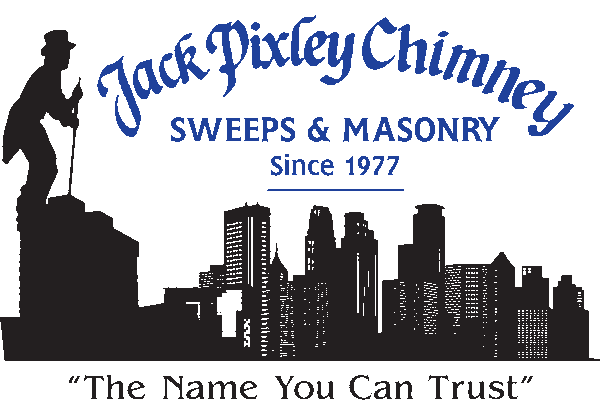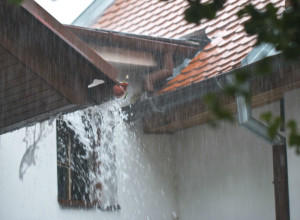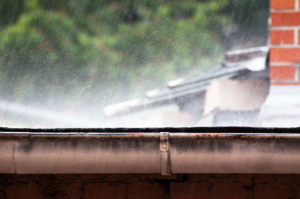While bricks and mortar are designed to withstand the elements, water can be an extremely damaging force to your chimney. Because of this, many homeowners choose to protect their masonry by having it waterproofed. However, not all waterproofing products are created equally. The type of waterproofing product used can affect your masonry, even to the point of doing more harm than good. The following explains the differences between water sealers and water repellents, how they affect your chimney, and which one if best for your chimney.
Masonry is uniquely suited to be used as the building material for chimneys; because it is naturally porous, gasses are able to pass through the bricks rather than be trapped inside. Unfortunately, the porous nature of bricks also mean that small amounts of water can be absorbed by the masonry.
While normal, undamaged bricks are unaffected by water, it only takes a small hole or crack to begin the freeze thaw process. During the freeze-thaw process, the water absorbed by the bricks freezes and expands in cold temperatures; the larger holes left behind are then able to absorb progressively more and more water. This type of damage has been known to cause serious cracking and spalling in as little as one year.
If your chimney is continuing to deteriorate year after year, water damage may be to blame. Waterproofing your chimney can help protect your masonry; waterproofing has even been shown to slow or stop existing water damage. There are two main types of waterproofing products on the market today – water sealers and water repellents. While many use these terms interchangeably, each product has its own properties and affects your masonry differently.
- Water sealers: Water sealers seal the entire surface of the masonry with a thick, continuous barrier. Paint is a common example of a water sealer. These products cover any holes or cracks in the bricks or mortar; while this keeps water from getting in, it also prevents water and gas from getting out. Because of the continuous barrier they form, water sealers prevent the bricks from being gas permeable as well as trapping existing moisture inside the bricks. This can cause deterioration from the freeze thaw cycle to continue even though the chimney has been waterproofed.
- Water repellents: Unlike sealers, water repellents penetrate into the masonry, coating the cracks, holes, nooks, and crannies of the bricks and mortar. By doing this, a continuous barrier is not formed but the masonry is still protected against water. This allows trapped water to evaporate while the masonry stays gas permeable.
The type of waterproofing product you choose can impact its effectiveness as well as your masonry. Because of this, we recommend that homeowners choose professional waterproofing with water repellents; this products can protect your chimney while letting the masonry retain its porous properties. For more information on what waterproofing products are best for your chimney, contact Jack Pixley Sweeps today.


